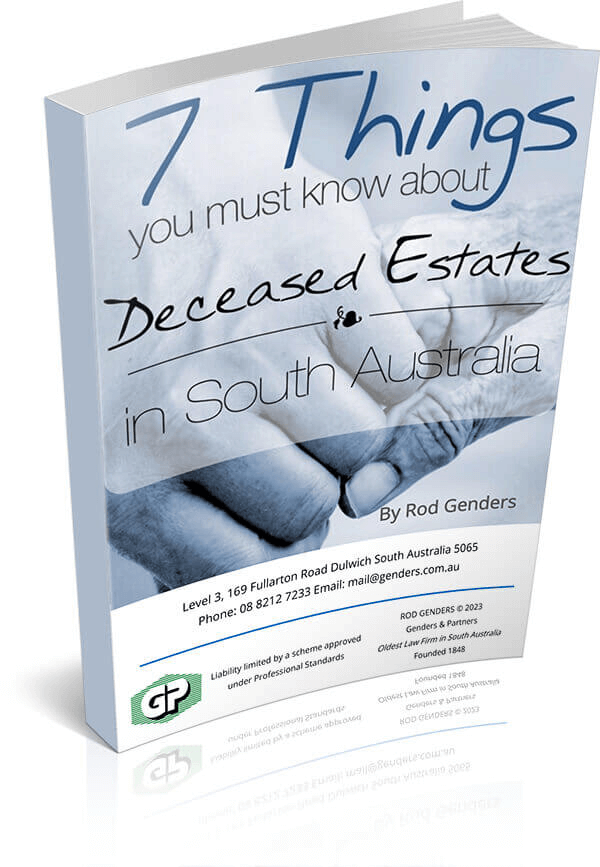Probate and Estate Administration in Adelaide and South Australia

Sorting out the estate of your deceased loved one can be a smooth and efficient process with the specialist advice and representation you need.
Applying for probate is a specialised area of law, and is a very exacting process. Administering a deceased estate in South Australia takes care and skill.
Different Types of Probate
There are Different Types of Probate on South Australia. Not every deceased estate requires probate.
1. Informal Administration
In some circumstances, the deceased estate of a person may be able to be administered informally, meaning that probate is not required. However this does not mean that it is easy, and great care must still be taken. Even if probate is not required, other formalities are still likely to be required, including an Application to Register Death for any real estate. Re-titling of other assets needs to be done carefully to prevent problems down the track. Effects upon pensions and other Government benefits will need to be taken into account.
2. Grant of Probate in Common Form
In order for a grant of probate to be made, a Will must exist and an executor must be appointed. Probate consists of registering the Will with the Supreme Court to prove its validity and authorise the executor to handle the distribution of the assets. Several carefully prepared documents, including an affidavit of assets and liabilities, must accompany the probate application. The original Will (and soon the original death certificate) must also be lodged at the same time.
3. Grant of Probate in Solemn Form
Compared the summary process of proof in common form, where the application is typically dealt with by the Probate Registry of the Supreme Court, proof in solemn form is more complex in procedures and forms and requires opening a litigation file in the Court. It usually delays the administration of an estate and costs more in legal fees and expenses, due to its great complexity.
If there is any doubt as to the validity of a Will or any apprehension that there may be opposition, it is open to the executor or any person with a beneficial interest under the Will to prove it in solemn form. On application for proof of a Will in solemn form, notice of the Court proceedings must be served on all persons having an interest in upholding or contesting the validity of the will, together with a warning to those persons that they will be bound by the result of the proceeding.
4. Letters of Administration
Under the laws of intestacy, you must apply for this type of grant if the deceased left no Will. In such cases, the estate is to be distributed according to the provisions of South Australia’s Administration and Probate Act, which also determines who is entitled to administer the estate under its statutory order. That person (or more than one person in some cases) must apply for a grant of letters of administration to distribute the estate.
5. Letters of administration with the Will annexed
If a valid Will exists but an executor has not been appointed 9for example if the named executor has died), you must make an application for a grant of letters of administration with the Will annexed. This grant protects all beneficiaries and can appoint you as administrator of the Will if the courts find you entitled to assume that role.
DIY Dangers
Unfamiliarity with the precise wording and specific procedural requirements of the Supreme Court Probate Registry make self-representation a lengthy & frustrating experience for most of those who attempt it. Many people who have attempted it, subsequently need help from a lawyer to get them out of trouble partway through the process. This type of remedial action is generally more expensive than if a lawyer had started the application from the beginning.
Beware Trustee Company Commissions
Most estate companies charge a commission for our work, which means they charge a percentage of the estate as a commission to administer it, and thus generally charge thousands more than a lawyer would, to perform the same work for an average estate.



